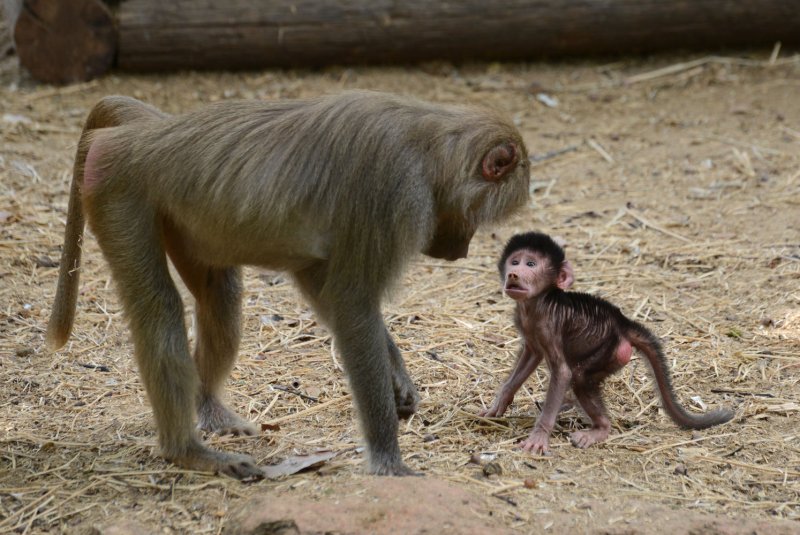Female promiscuity is the only defense mechanism for infanticide, research suggests. UPI/Debbie Hill |
License Photo
CAMBRIDGE, England, Nov. 13 (UPI) -- Love, not violence. That's the message many female mammals have unwittingly promoted and preached over the course of many years of evolution.
In a new study, scientists suggest the females in a variety of mammal species use promiscuity as a strategy to prevent infanticide, while males kill offspring when their social structure calls for desperate measures to ensure reproduction.
When a female has many mates, the researchers explain, fatherhood is less obvious. And because chimps, bonobos and other species don't have daytime talk shows to sort out their tangled love triangles, fathers are left guessing. When a father is left unsure of which offspring are his and which aren't, he's less likely to kill them. Thus, less infanticide.
But the strategy does more than diminish the role of violence over time. As females opt for more and more mates, males must keep up. To do so, they adopt larger and larger testes -- larger testes ensure there's enough sperm to go around. And so, as a general rule, species which feature infanticide, tend to boast males with larger testes.
"Once sperm competition has become so intense that no male can be certain of his own paternity, infanticide disappears -- since males face the risk of killing their own offspring, and might not get the benefit of siring the next offspring." Dieter Lukas, a researcher in the University of Cambridge's Department of Zoology, explained in recent a press release.
Researchers have previously suggested that infanticide might be an evolutionary driver, but most thought the biological phenomenon encouraged strong alliances among females, or a strengthened reliance on the protection of loyal males.
"We've now shown that this isn't the case: male infanticide is a consequence of variation in sociality, most commonly occurring in species where both sexes live together in stable groups," said Lukas.
Infanticide is not a constant but simply a tool that rises and falls in popularity over the course of evolution, researchers say -- its employment depends on the state sexual competition within a specific mammalian society. It's employed by more than 260 species, from field voles and house mice to lions and gorillas.
When a society is dominated by only a small group of males, with a short tenure at the top of pecking order, they must mate when they have the chance. If that means killing a female's offspring so she's ready to try again sooner rather than later, then so be it.
The study was published in this week in Science Magazine.















